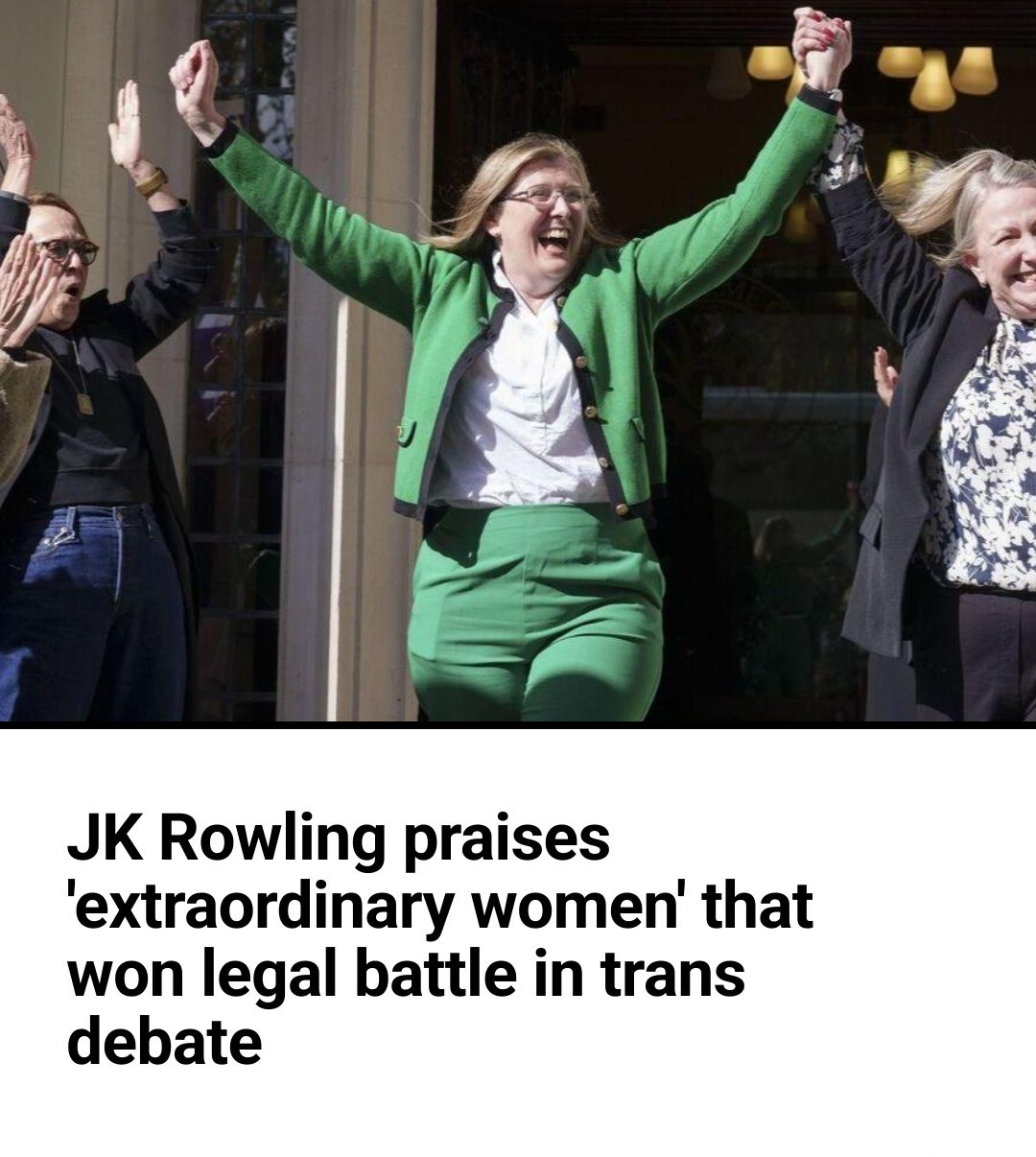Author JK Rowling has paid tribute to “three extraordinary, tenacious Scottish women” who secured the Supreme Court ruling that the term “woman” in equality law refers to biological women. The verdict has been hailed as a milestone and it means, as the judges made clear in their ruling, that organisations providing single-sex facilities such as changing rooms should limit these to biological women.
It could also lead more girls’ and women’s sporting contests being limited to biological women. But campaigners calling for the rights of women to be respected, as they see it, have often faced criticism and sometimes abuse. So who are the women who succeeded in getting the law made clear? The Harry Potter author wrote on X: “It took three extraordinary, tenacious Scottish women with an army behind them to get this case heard by the Supreme Court and, in winning, they’ve protected the rights of women and girls across the UK.”
She then referred to For Women Scotland, the organisation that took the legal action. The Directors of For Women Scotland are Trina Budge, Susan Smith and Marion Calder, who got together on website Mumsnet.
For Women Scotland was founded in June 2018 following concern about the Scottish Government’s controversial plan to reform the Gender Recognition Act so that people no longer required a medical diagnosis to change their gender legally.
The group also fights against what it calls the “ongoing push from Government-funded lobby groups” to change laws protecting women on the basis of their sex to focus instead on gender identity. Critics of the focus on gender this makes it impossible for women to have single-sex spaces because it means people born male who identify as women as given entry.
For Women Scotland says it works to highlight “the devastating impact such policies have already had on the lives of ordinary women and girls in Scotland – in hospitals, schools, prisons, sports, public spaces and especially in women’s sector organisations such as Rape Crisis or Women’s Aid.”
Ms Smith is an Oxford-educated fund manager who had taken a career break to look after three children.
Ms Calder is an NHS manager with one son, who is now an adult but was a teenager when the group was founded. She lived in Hawaii for much of her childhood.
Ms Budge is a a farmer’s wife with a young son living in a remote area of north Scotland.
They have not been alone. High-profile supporters of the campaign to protect single-sex spaces include academic Helen Joyce, author of the book “Trans: When Ideology Meets Reality”.
Others include Maya Forstater, who successfully took legal action against a think tank that failed to renew her contract after she said people cannot change their sex.
Another high profile figure is Kathleen Stock, an academic who resigned from the University of Sussex after a student campaign demanded her dismissal for comments such as stating that many trans women are “still males”.
Women who are sceptical about the idea that being a man or woman is about “gender identity” rather than a person’s physical body are sometimes called “TERFs” by critics. This stands for trans-exclusionary radical feminists and is often used as an insult, but some of those on the receiving end have chosen to adopt the term to describe their beliefs.
